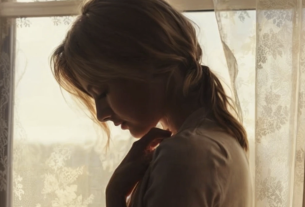Andrey slowly climbed the stairs to Yelizaveta Sergeyevna’s apartment. His mother’s friend had been calling for three days straight, insisting on a meeting. “A son’s duty”—those words had been etched into his memory since childhood.
“Come in, don’t just stand at the door,” his mother’s voice carried its usual authority. “See what you’ve done to your own mother?”
Andrey glanced around the unfamiliar room, cluttered with remnants from their once-large apartment.
“Done?” he sat down on the edge of the sofa. “I haven’t had anything to do with your life for eight years.”
“Don’t get smart with me!” she snapped, spinning around. “If you had married a proper girl from a good family, everything would have been different! Your father wouldn’t have died of grief!”
“Mom, you’re a PhD,” Andrey tilted his head, studying her face. “Do you seriously think a heart attack happened because of my marriage? Or is it just easier for you to shift the blame?”
“You… how dare you! I gave my whole life to you, and you chose that… that worthless teacher over your own mother!”
“I didn’t choose anyone over you, dear Mama. You gave me an ultimatum yourself: either the bride you approved, or exile. Remember? Or has sclerosis already eaten away your memory?”
As a child, Andrey was used to his mother’s commands. English lessons three times a week, then swimming, then judo—Yelizaveta Sergeyevna copied the achievements of her friends’ children, forgetting each hobby after a few months.
“Lizochka was made for love, not for work,” his father used to explain when his son wondered why his mother spent her days chatting on the phone while the housekeeper ran the home.
“Dad,” ten-year-old Andrey once asked, “why doesn’t Mom ever ask what I want?”
“Son, your mother knows best what you need. She’s an educated woman.”
“Then why doesn’t she work, if she’s so educated?”
Pyotr Mikhailovich would only sigh and retreat to his newspapers. He earned well in a construction company, providing his wife with a carefree life of beauty salons and restaurants.
Everything changed when Andrey was in college and fell in love with Olya.
“That plain little fool from the teaching faculty?” Yelizaveta Sergeyevna grimaced as if she had tasted something sour. “You’ve lost your mind! I forbid you to see her!”
“Mom, I love her.”
“Love!” she snorted. “I know better who suits you! That gray mouse doesn’t even know how to use makeup! What will my friends think?”
“So now I’m supposed to marry a girl your friends approve of?” Andrey smirked. “Mom, I’m twenty-two, not twelve.”
“As long as you don’t come to your senses, you have no place in this house!”
“Wonderful. Exactly what I expected from a loving mother. Support and understanding.”
Andrey left and never returned. He and Olya married right after graduation, first living in dorms, then renting apartments. His father secretly offered money, but Andrey refused.
“Son, think it over,” Pyotr Mikhailovich pleaded during their rare café meetings. “Your mother is upset.”
“If she’s upset, let her meet Olya properly—without contempt and nasty remarks.”
“You know how stubborn she is…”
“Dad,” Andrey leaned closer, “you’ve lived with this woman for thirty years. Haven’t you realized her stubbornness is just selfishness wrapped up nicely?”
“Don’t talk like that about your mother…”
“How else to speak of someone who refuses to accept her grown son’s choices? What, does she want to pick my socks and my wife for me until I’m old?”
Only when the young couple planned a child did Andrey accept help. His father bought them a small apartment and found him a good job.
“Dad,” Andrey said, taking the keys, “I’m accepting this only for the sake of our future child. But Mom doesn’t set foot in our home until she learns to respect my choices.”
“When the baby is born, she’ll soften…”
“We’ll see. Though I doubt her ability to change.”
Over eight years, Aneečka and Maxim were born, and the family bought a three-room apartment on a mortgage. The children knew only their grandfather—the grandmother refused to see them.
“Liza, stop being stubborn,” Pyotr Mikhailovich begged his wife. “The grandchildren are growing, and you don’t know them. Aneečka is already reading, and Maxim is so clever…”
“Let that ungrateful brat apologize and divorce that fool of his! Then we’ll talk about grandchildren!”
“Liza, they’re already five and three…”
“I don’t care! Until he comes to his senses, there are no grandchildren!”
When their father passed away, Yelizaveta Sergeyevna pounced on her son at the funeral:
“You killed him! Drove him to the grave with your behavior! If you weren’t such an ungrateful beast, he’d still be alive!”
“Mom,” Andrey spoke quietly but firmly, “Dad died of a heart attack. From atherosclerosis, smoking, and work stress. But if it’s easier for you to blame me—fine. You’ve always been good at burying the truth.”
“How dare you… At your father’s funeral!”
“And at his funeral, his widow accuses her son of murder. Very normal. Very Christian.”
They didn’t speak for two years. Then Andrey heard rumors about Roman—an ingratiating forty-year-old who was “comforting” the fifty-eight-year-old widow. What he promised her, no one knew, but soon Yelizaveta let him move in, then took out a loan for his “business.”
“Liza,” neighbor Aunt Valya warned, “I don’t like this Roman of yours. Too smooth-talking…”
“You’re just jealous!” Yelizaveta cut her off. “Roman is an entrepreneur, he has his own business! Not like some losers!”
“I’m just warning you…”
“I’m a grown woman. I know people.”
When Roman disappeared with the money, the apartment was seized for debt. Now his mother sat before him, in a stranger’s one-bedroom flat, surrounded by scraps of former luxury.
“I raised you, fed you, put you on your feet!” Yelizaveta’s voice shook with rage. “Now it’s your turn to help! I have nowhere to live!”
“You have your friends. The ones whose opinions mattered more than your son’s happiness.”
“Friends don’t have to support me! But you—you’re my son! My only son!” she jumped up. “I demand you take me in!”
“Into the family you ignored for eight years? Into the home where the grandchildren you called ‘that fool’s brats’ live?”
“Don’t you dare speak to me like that! I’m your mother!”
“Motherhood isn’t just biology, dear. A real mother doesn’t disown her son over his choice of wife. Doesn’t blame him for his father’s death. Doesn’t refuse to know her grandchildren. You? You’re just the woman who gave birth to me. And that’s where motherhood ended.”
“You heartless egoist! Just like your wife!”
“Olya? An egoist?” Andrey laughed. “The woman who’s worked in a school for eight years, raises the kids, runs the household? Unlike someone who spent her life on her husband’s back?”
That talk led nowhere. Andrey flatly refused to register or let his mother live with him.
“Andrey, dear,” Yelizaveta tried a different tactic, “I know I was wrong. Let’s reconcile. I’m ready to meet your… your Olya.”
“Mom, too late. Much too late. You’ve insulted Olya countless times, deprived my kids of a grandmother, me—of a mother. Now you’re ready only because you’re homeless.”
“I truly regret it!”
“Truly? And if someone gave you a house tomorrow, you’d go back to despising my family, right?”
She even tried to sue for part of his apartment, claiming the first purchase was with family money. She lost. Andrey paid for temporary housing, then settled her cheaply in an empty flat of an old woman who had moved to the village.
Stepping into that flat, Yelizaveta nearly cursed her son.
“My God!” she moaned into the phone to a friend. “You should see the hole he shoved me into! Furniture from the last century, peeling wallpaper… I can’t live here!”
“Liza, what can you do? At least your son gives you something…”
“Something?! He’s obliged to provide for me!”
A month later, she filed for alimony—seventy thousand.
“Seventy thousand?” the judge raised his eyebrows. “On what basis?”
“I’m used to a certain standard of living!” Yelizaveta declared. “My son earns well, he can afford it!”
“Ma’am,” the judge took off his glasses, “your son has two minor children and a mortgage. Fifteen thousand is what the law allows. No more.”
“Fifteen?!” she screamed in the hallway. “I’ll starve to death on that! Do you want your mother to die like a dog?!”
“Then maybe it’s time to look for a job,” Andrey replied calmly. “You know, people actually get paid for work.”
“A job? At my age? You’re mocking me!”
“Olya’s been teaching since she was twenty-two. At any age. And you once called her a ‘gray mouse’ and ‘fool.’ Don’t you think a PhD could manage what a ‘fool’ does?”
“You… you venomous snake! Just like your wife!”
“Thanks for the compliment. If I’m like Olya, then I got lucky with my wife.”
The court’s decision freed Andrey: he now paid the legal sum, nothing more. But his mother’s visits—demanding money, throwing tantrums, spewing accusations—poisoned their lives.
“Listen,” he said one evening, setting aside his paperwork, “what if we move?”
“Move? Where?” Olya looked up from the book she was reading to the kids.
“To Samara. I’ve been offered a job there. Good conditions, solid salary.”
“And your mother?”
“My mother will still get her fifteen thousand. Transfers work nationwide,” Andrey said with irony. “But she won’t have keys to our home anymore.”
Olya hugged him:
“I agree. It’ll be better for the kids too. Aneečka won’t jump every time the doorbell rings.”
“And Maxim won’t hide behind the couch at the sound of her voice,” Andrey added. “Children shouldn’t fear their own home.”
“When do we start packing?”
“I’ll hand in my resignation in a week. In three months, everything will be settled.”
Three months later, the apartment was sold, boxes packed. In Samara awaited a new job, a new school for Aneečka, a new kindergarten for Maxim. Most importantly—a life without constant fear of sudden visits and scandals.
As usual, Yelizaveta turned up unannounced—screaming, demanding money for “treatment,” waving medical receipts.
“That insolent woman won’t open the door again!” she fumed, pounding the bell. “She’s poisoned my son against me, that witch!”
The neighbor answered instead:
“Yelizaveta Sergeyevna? They moved out two weeks ago.”
“Moved? Where?”
“No idea. They didn’t leave an address. Just sold quickly and left.”
“What do you mean, no address?! I’m his mother! I have heart problems! I need money for medicine!”
“Well, I know he still sends you money. But where they live—I don’t know.” The neighbor shrugged and shut the door.
Yelizaveta raged, calling colleagues, Olya’s friends. No one knew, or pretended not to.
“How can you not know? You worked with him!” she shouted into the phone.
“He quit and left. Didn’t say where. Maybe abroad, maybe another city.”
“He had no right! I’m his mother!”
“He did. He’s a grown man,” the colleague said calmly and hung up.
Meanwhile, in Samara, Andrey helped Maxim build with his new set, while Aneečka did homework at her desk, and Olya prepared tomorrow’s lessons at her new school.
“Dad, will Grandma find us?” Aneečka asked, setting down her pen.
“No, sunshine. She won’t,” Andrey hugged her. “We live too far now.”
“And she won’t yell at Mom anymore?”
“No. No one will yell in our home now.”
“And she won’t say I’m a bad student?”
“You’re an excellent student. Don’t let anyone tell you otherwise.”
Maxim ran up with his robot:
“Dad, look! It shoots!”
“Bravo. You’re becoming a real engineer.”
Olya joined them, putting away her papers:
“It feels so good just to talk together.”
“Without explaining every kopeck we spent,” Andrey added. “I transfer fifteen thousand every month. Law fulfilled, conscience clear.”
“And your conscience really is clear?”
“Completely. I don’t have to let even my own mother abuse my family.”
But Yelizaveta still searched, phoning everyone, demanding addresses.
“Lyudmila, you were friends with Olya! Don’t you know where they went?”
“We weren’t that close. And no, I don’t.”
“How is that possible?! A son runs away from his mother—it’s unheard of!”
“Maybe there was something to run from,” Lyudmila suggested softly.
“What do you mean? I was a bad mother? I gave him my whole life!”
“I’m not saying anything. Goodbye.”
The line went dead. Yelizaveta threw the phone on the couch.
“Everyone’s against me! That witch turned them all!” she screamed into the empty apartment.
But only the echo answered. Her son was gone, and no one knew where.
Six months passed. She never found him. Every attempt failed—Andrey had arranged a temporary registration elsewhere, his workplace undisclosed.
Money still arrived punctually every fifteenth of the month. But it wasn’t enough—she needed control, the ability to demand, reproach, command.
“He has no right to do this to me! I’m his mother!” she told a friend on the phone.
“Maybe you should have treated him better while he was around?”
“Better? I gave him everything! Raised him, taught him, worked!”
“You raised him, yes. But did you love him?”
“Of course I loved him! How can you say that?”
“Love is also respect, trust, acceptance.”
“Nonsense! I know best what’s good for him!”
“Seems he thinks differently.”
“His witch of a wife turned him!”
“Maybe stop blaming everyone else? Maybe think about your own behavior?”
The line went silent again—the friend had hung up, tired of endless complaints.
Meanwhile, life in Samara flowed smoothly. Andrey was promoted, Olya became head of the math department, Aneečka excelled at school, and Maxim prepared for first grade.
A year later, still unable to find her son, Yelizaveta took a job as a grocery store clerk—the alimony barely covered utilities, and at sixty, pride no longer kept her warm. Standing behind the counter, ringing up goods, she sometimes thought of the grandchildren she never knew, of the son she had driven away with her own hands, and of the truth she finally understood too late: a son’s duty is a two-way street. But by then, there was no address, and his phone number was blocked forever.



